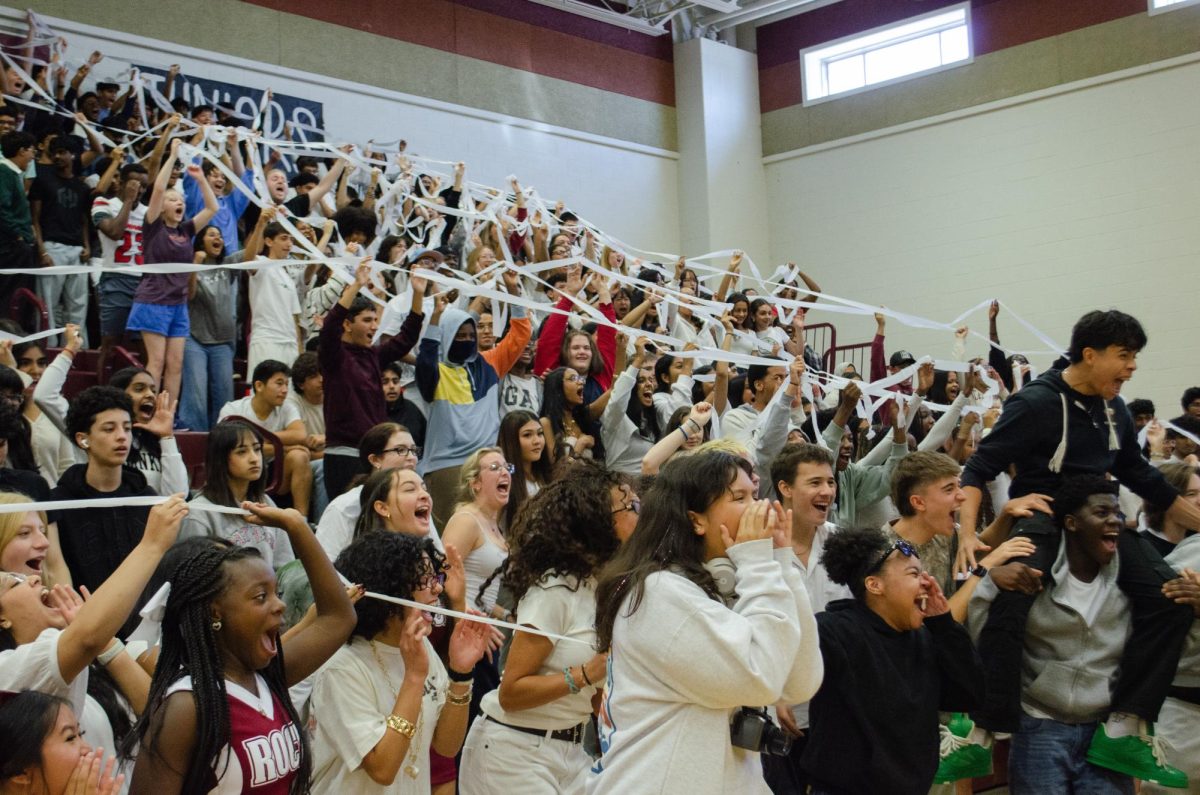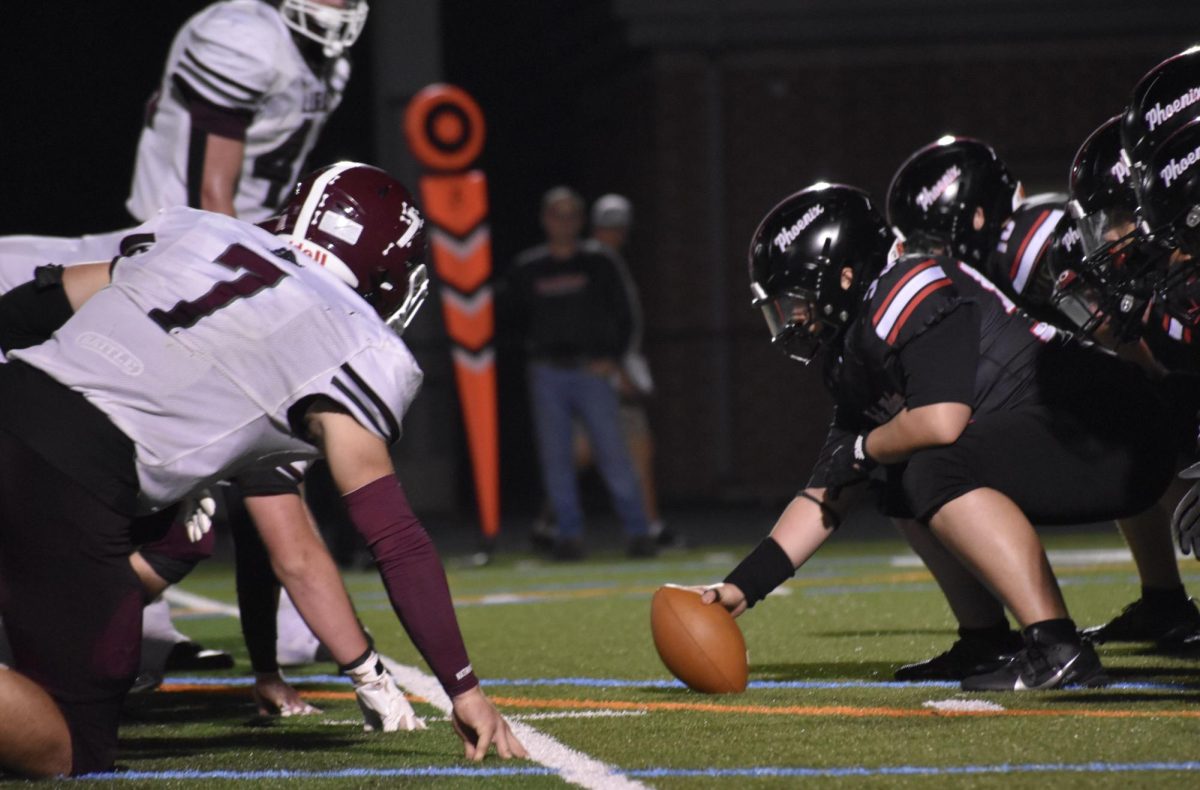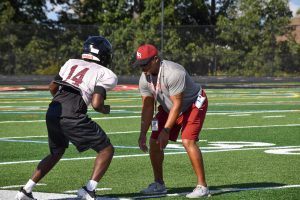Seniors Deserve Asynchronous Mondays
After 12 years of general education, seniors deserve an additional day to balance their life schedules to properly commit to college, school, and job responsibilities — especially after transitioning from distance learning. The addition of asynchronous Mondays would allow seniors to enjoy their weekends and take mental health days so they are able to enjoy their senior year.
Growing up dealing with the increased amount of responsibilities, seniors have the constant pressure of managing their homework, jobs, extracurriculars, college admissions, and more. All these factors combined can cause an overwhelming feeling of stress for students.
February 2, 2022
The pressure to meet high standards and overwhelming responsibilities is not a rare experience for Loudoun County seniors. The fourth and final year of your high school career should be filled with parking spot painting, pep rallies, football games, and spirit weeks. However, that’s not the case for seniors who feel crushed by the strain of college applications, time-constricting SAT and ACT prep, constant job shifts with the labor shortage, persistent sport and/or club activities, and the never ending pile of school work. This year especially, the transitional phase of distance learning to an in-person learning environment is difficult to adapt to after the chaotic months of virtual classes.
The solution: asynchronous Mondays.
The one, and arguably only, benefit (aside from the hour-long lunches) that came out of virtual learning were the asynchronous Mondays. This small schedule adjustment let students breathe and manage their own time to accommodate their crazy schedules. It also provided students a time to check-in with teachers and ask questions. An asynchronous period would provide additional time for students to catch up on assignments and late work and give students the opportunity to actually enjoy their weekend rather than cram for SAT prep and college applications.
The advantage seniors gain from asynchronous Mondays is the time to adjust their schedules and actually commit to their school assignments rather than coming home exhausted from late night work shifts, barely having energy to complete assignments efficiently.
It’s nearly impossible for seniors to truly balance the workload that piles up by the end of the school week; it is completely unattainable for students to complete these assignments on a single two-day weekend that is also meant for relaxing, spending time with friends and family, and taking a moment from the stress of life. This idyllic picture, however, excludes time-consuming activities such as family responsibilities, jobs, and volunteer hours needed for competitive universities.
Although students choose to dedicate themselves to opportunities like participating in a school activity or committing to a job, the pressure to sustain positions in these activities is equivalent to the stress of turning in a 11:59 p.m. assignment 30 seconds before the clock strikes 12. It’s a mental toll on students to commit and balance their schedules. Even though it teaches these individuals about life skills such as balance and capability, it shouldn’t be excessive to the point of a mental breakdown into a depressive state.
Senior advisor and career center assistant Mary Barnes agrees that asynchronous Mondays were a huge benefit from last year. “It helps me from the perspective of [college] admission rep visits,” Barnes said. “I was just scheduling back-to-back on Mondays. It was easier for the students not having to worry about getting out of class. Also, we could do more virtual [visits for] schools that aren’t close.”
Transitioning from the virtual world to real life is a big awakening, and the instant push into rushed education does not help seniors who are still adjusting to the college scene. Students have to understand and schedule for college tours, begin the application process on the common or coalition app, and seek jobs or military positions for next year. These rampant tasks are a common theme mentioned during the first months of senior year.
Seniors deserve to have weekend breaks. Senior year is the final year of school. After 12 years of school, seniors should have these days to relax, thanks to their hard work and commitment they have shown in their previous years. Though underclassmen do experience some of these challenges and could also benefit from asynchronous Mondays (specifically juniors), they do not have the main stresser of formulating post-graduate plans. Asynchronous Mondays as a senior privilege would allow underclassmen to feel motivated and excited to become a senior, not dread the stress and pressuring expectations previous and current seniors have.
The recent asynchronous week students had from Nov. 1-5 was a great example of how some time off can give students a breather from the everyday pressures of high school. Nov. 1 was a huge deadline for seniors applying early action and for honors college and merit scholarship consideration. The week allowed students time to focus solely on their applications. Other students relaxed or even picked up extra shifts at their jobs. As some of these days were asynchronous and not student holidays, teachers still assigned work, so there was no gap in learning, but students were able to manage their time themselves and plan accordingly. “It was a nice break to reset my workflow, so now I’m more motivated to do work,” senior Sydney Duran said.
Others may argue that asynchronous Mondays will be seen as “senior skip days” or that seniors will only use it to their advantage. But is that not the point? With the current workload, those using these Mondays to only relax are in the minority, but what’s wrong with them using this opportunity?
“I love [asynchronous Mondays], I did get a lot of work done,” Duran said. “I also felt like it was a nice break if you did your homework on Saturday or Sunday, so it was like an extra day to take a break.”
Moreover, concerned parents or teachers may worry about senior students falling behind on work if they are involved in mixed grade classes. Yet, teachers post the majority of their assignments and resources online. This common method can still be used to accommodate asynchronous Mondays for seniors, allowing them to still be a part of the class.
Ultimately, it would be up to the teacher to decide how to respond to this. Especially with mixed grade classes, it may seem complicated to make it harder for teachers to keep track of their students and make separate assignments just for seniors. Rather, teachers could leave instructions or an agenda of what the class will be doing today. Additionally, teachers could keep calendars to update their students of upcoming dates or assignments that may need to be in the building for. This simple solution prevents students from falling behind unless they decide not to complete the asynchronous work, which is on the student to be accountable for.
Even so, the asynchronous Monday alone for seniors may seem like a very complicated process to coordinate. If mixed classes become too much of an obstacle, why not just try out “study hall Mondays”? Underclassmen students would be able to attend and request teacher support or work on any missing or upcoming assignments like they would during Rock Block. However, for seniors, this day would be completely optional. It prevents a confusing schedule, rather promoting the mental health and resources of all students to have a time and space to focus on their academics. Even though it would be the most beneficial for senior students, “study hall Mondays” could also be a valuable resource for underclassmen.
The idea around asynchronous Mondays is all about time management. Asynchronous assignments allow students to do their work when it best fits their schedule. The amount of work would remain the same, but would give breathing room to students who maybe need another day to spread their time out with.
Furthermore, our student body is diverse and it takes students varying amounts of time to complete the same assignments. Student A may only take ten minutes to fly through their chemistry worksheet while Student B could take well over an hour. Although each student takes a different amount of time, it means that we simply have different strengths and studying methods. The situations could be flipped where Student A could spend an entire day on an argumentative essay while Student B harnessed their AP Language and Composition skills to type theirs up in an hour.
Students working at different paces can have the unfortunate consequence of wasted time in their classes while in person. This obstacle is eliminated for one a week during asynchronous Mondays so students can use their time wisely and efficiently. Student A could use that extra time left over from working on chemistry to practicing some timed essays. Meanwhile, Student B can close their Google Docs tab and tune in to Hank Green’s crash courses and brush up on science.
Schools need to consider the mental health of their students. Students shouldn’t view attending school as a natural disaster they need to survive, but an opportunity to have access to quality education to prepare them for life. Education is a valuable privilege granted to Loudoun County students, and rather than seeing it as a negative cause of turmoil in their lives, they should experience it as the wonderful opportunity it is. Reincorporating asynchronous Mondays is the first step in building the best foundation and solution for seniors regarding their academic success and mental health.

























![The Phoenix varsity volleyball team lines up for the national anthem. “We were more communicative [with each other] during this game, and I feel like we kept our energy up, especially after the first set,” senior Jessica Valdov said.](https://theblazerrhs.com/wp-content/uploads/2024/10/DSC_0202-1200x800.jpg)










![Junior Alex Alkhal pitches the ball. “[I] just let it go and keep practicing so we can focus on our goal for the next game to get better as a team,” Alkhal said.](https://theblazerrhs.com/wp-content/uploads/2025/05/DSC_0013-1-1200x929.jpg)

























